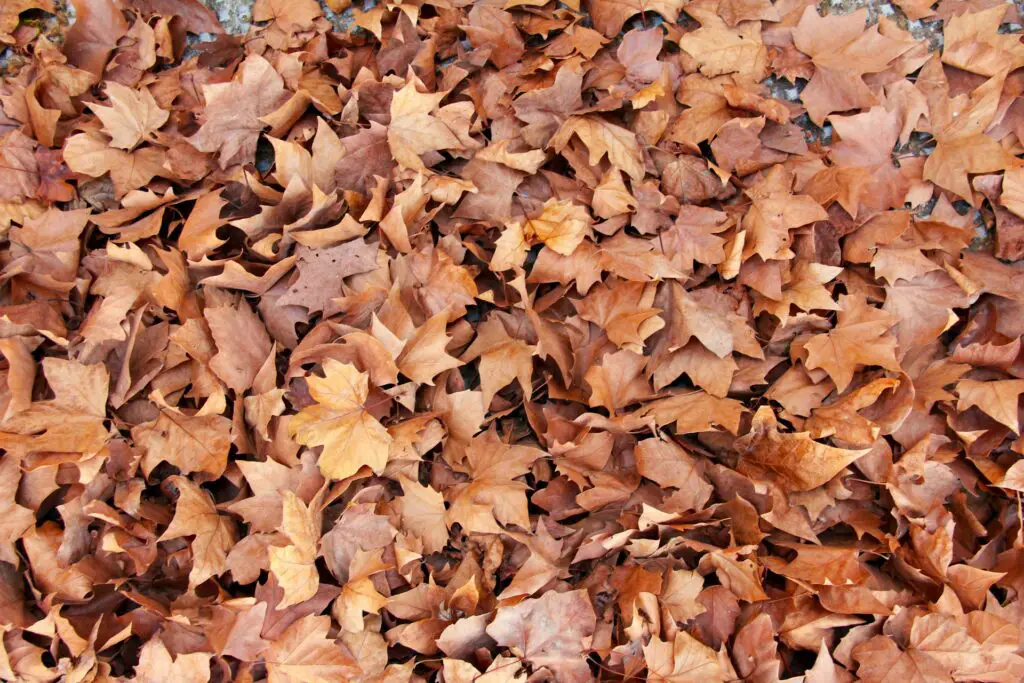Have you ever wondered if giving back fallen leaves to a neighbor could cause legal trouble? In a viral video, a peculiar conflict arises over leaves, property lines, and legal details in a neighborhood. The footage sparked curiosity, leading us to unravel the unexpected drama over the foliage. Let’s explore how a simple neighborly leaf dispute turned into a legal puzzle, with Attorney Ugo Lord providing insights into the surprising legal consequences that might catch many off guard.
The Viral Video
In the video, a clear difference emerges between the two yards. The neighbor’s yard is devoid of trees, standing in sharp contrast to the POV homeowner’s plot, covered in a blanket of fallen leaves. This prompts a common question: Can you decide where leaves end up? The disparity in greenery becomes a focal point, highlighting the timeless challenge of managing the descent of leaves. The video captures this dilemma, making us think of whether we have any say in the whimsical journey of these autumnal companions.
Legal Rights and Overhanging Trees
In sharing his insights, Attorney Ugo Lord brings attention to an important legal point. If branches from your neighbor’s tree extend over your property, you can trim them to keep leaves at bay. Surprisingly, you can also bill your neighbor for the tree-trimming service. However, the plot thickens here. While it seems straightforward, the legality of returning leaves to your neighbor’s property takes a different direction, adding complexity to what initially appears to be a simple neighborly affair.
Dumping Dilemma: Illegal or Just Leaves?

Legally, the homeowner can trim branches that hang over their property, but giving the leaves back to the neighbor might lead to trouble. In California, if you put waste, like leaves, on someone’s property without permission, it’s seen as illegal dumping under Penal Code § 374.3 PC. So, while cutting overhanging branches is okay, tossing the leaves back could mean breaking the law. Be mindful of these legal boundaries to avoid unintended consequences and maintain a peaceful neighborhood.
Penal Code 374.3 PC
Breaking down the legal talk, the code plainly says that dumping stuff on someone’s property without their say-so is a no-go. This covers a whole range – not just rocks and concrete but, surprise, surprise, fallen leaves, too. So, what happened in the video might fit the bill for classic illegal dumping. The law’s straightforward – don’t chuck your stuff onto someone else’s place without asking. And in this case, those leaves might be causing more legal trouble than you’d think.
Examples Speak Louder
The Penal Code gives us real-life examples that echo the leafy dispute in the video. Terry’s Landscape Company, for instance, dumps debris in a public park, while Kyle exhibits less-than-neighborly behavior by throwing beer bottles on a neighbor’s lawn. These instances mirror the broad range of actions classified as illegal dumping. The striking parallels reveal the diverse nature of activities that fall within the umbrella of unlawful dumping. This underlines the importance of understanding the legal consequences surrounding waste disposal on public or private property to avoid unintended violations.
Penalties Looming Large

The POV homeowner faces significant consequences in this neighborly leaf dispute. According to Penal Code 374.3 PC, illegal dumping is considered an infraction, bringing fines ranging from $250 to over $3,000. The severity increases with repeated violations, reinforcing the gravity of the offense. With each instance, the penalties climb, making it clear that this isn’t a minor matter. This means our homeowner could look at substantial financial repercussions, highlighting the importance of understanding and abiding by the law to avoid escalating penalties in this unexpected legal tangle.
You can delve into our comprehensive guide to explore more about property rights and legal responsibilities.
Counting the Cost of Violation
You might face fines ranging from $250 to $1,000 for the initial violation. If a second offense occurs, brace yourself for steeper penalties, ranging from $500 to $1,500. A third violation could incur costs starting at $750 and potentially exceeding $3,000. Crucially, each day the debris lingers unlawfully adds another violation, amplifying the financial repercussions. This means that the longer the illegal dumping persists, the greater the financial burden becomes, emphasizing the importance of swift resolution to avoid accumulating fines and additional legal complications.
Tires Add Fuel to the Fire
Adding used tires to the dumped garbage doubles the fines—a surprising twist complicating the situation. This highlights the importance of being responsible when getting rid of waste. If discarded items include old tires, the monetary penalties significantly increase. This detail underscores the need for careful waste disposal practices, as the consequences of including used tires in the dumped material can amplify the legal and financial repercussions. In essence, the presence of tires adds a layer of complexity, urging individuals to adopt more responsible methods when disposing of items.
The Ripple Effect of Daily Violations
Most importantly, under Penal Code 374.3, each day the waste stays unlawfully dumped, adding a fresh violation. This means that the debris lingers illegally for each passing day, and the homeowner’s legal troubles intensify. The violations accumulate day by day, making the situation more complicated. The longer the waste remains on the neighbor’s property without permission, the more serious the consequences become for the homeowner entangled in the leafy dispute. Understanding this daily escalation is crucial in navigating the legal complexities surrounding waste disposal on private property.
Wrapping Up the Foliage Fiasco
In summary, though giving the leaves back to their source may seem tempting, the legal consequences can extend significantly. It’s crucial to comprehend the subtleties of property rights, tree-trimming rules, and the legal definition of illegal dumping. This understanding becomes essential when managing disputes with neighbors, ensuring that one doesn’t unintentionally violate the law while attempting to resolve a seemingly simple disagreement about leaves. Navigating these nuances is critical to maintaining a good relationship with neighbors while avoiding potential legal complications.

